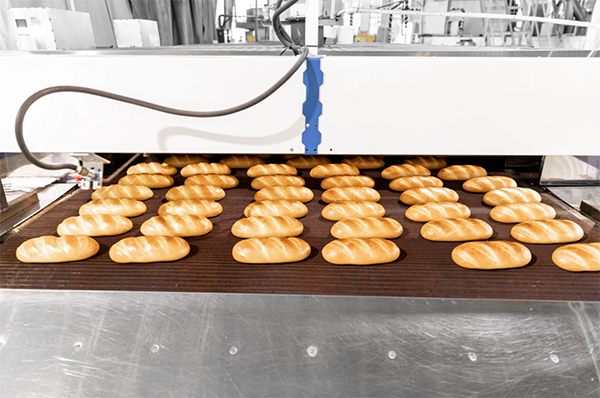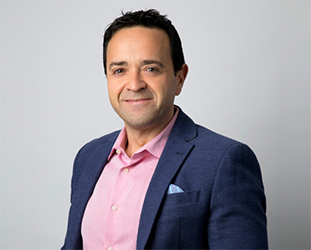AI can be easily integrated into existing infrastructure and can be used to inspect case packing, therefore maintaining production goals.
In a pandemic year, traveling to visit customers has been a rare occurrence. In the instances it has happened, I would venture so far as to say it was a treat. Earlier this year I was gifted one such treat – after many months of interacting via Zoom, I finally had the opportunity to visit a customer’s factory and learn more about their processes and challenges.
A world leader in their category, I had been looking forward to visiting this food and beverage company, based in Northern Italy, for quite some time. On a hot day in July, the factory gate was finally open to allow visitors in. “You are our third external visitor this year,” I was told. And as we walked through the factory, I was greeted by busy employees manning huge production lines throwing quick, curious glances. “You know, our production facility runs with about 20% of its workforce these days. Seeing a guest is pretty uncommon!” They were right: a sparsely populated production floor and a semi-deserted production facility, with clearly overstretched staff, in a surreal atmosphere. With all that ‘empty space’ between workers in this 2021 food factory, I immediately wondered whether that space could be augmented by technologies able to work alongside humans in tasks such as quality inspection and predictive maintenance, to ensure smooth operations. I was not too far off from what the Head of Quality was thinking.

Far from being an exception to the rule, this food manufacturer is one of many that had to quickly adapt to the new normal. The food industry in its entirety has been under pressure like never before, with increased stress on food demand, production, processing and distribution, not to mention sourcing and supply chain.
With a decreased workforce availability compounding an already under-pressure sector in dire need of qualified workers, the demand for new technologies, and Artificial Intelligence (AI) in particular, has skyrocketed. In an effort to keep things up and running, manufacturers need AI to fill the ‘empty space.’ Once a buzzword associated with job losses and massive societal shifts and crises, the sentiment around the industrial application of automation technologies, in primis robotics and AI, has radically shifted. The global pandemic exposed the need for AI and automation in industries such as food manufacturing, where operations were halted due to social distancing requirements and other restrictions.
This new impetus is also mirrored in the US domestic political agenda, with key initiatives already underway to apply AI to make our food supply chain more robust. For example, AI can facilitate an agile procurement strategy, improve last-mile delivery, and widen the range of solutions being offered to supply chain stakeholders.
In a typical manufacturing setting, with decreased workforce and increased interpersonal separation, one area where AI can have a profound impact and be seamlessly flanked with the human worker, is the process of visual quality inspection. In 2021, software powered by deep learning – the branch of AI that enables quick training of visual quality inspection models with images directly from the production floor and emulate aspects of human vision processing (such as “this is a defective part”) – can be easily implemented and seamlessly integrated in existing Industrial IoT infrastructure. Namely, product quality can be improved with inexpensive cameras and industrial computers already available (or easily obtainable) by manufacturers or system integrators.
Take raw food ingredients as an example. AI can be quickly configured to inspect these ingredients for contaminants, which is often not an option for a human worker (too repetitive of a task, too fast of a process, or just too hard to find somebody willing to do that job!). AI can also be deployed to inspect that all components of a food tray (e.g., a ready-made meal) are present and in the right spot. Once products are manufactured correctly and ready for shipping, AI can then be used to confirm that the case is correctly wrapped, and that each box contains the right product. This latter step can be again handled by AI by comparing barcodes of products – such as canned food – with the barcodes present in the packaging, and then matching that information with the expiration date to determine all is in order and ready-to-go, or in need of human intervention.
The past several months have seen a food Industry under pressure, from factory closures, high absenteeism among workers, rationing of supplies, price increases, all the way to our favorite restaurants shutting down. A crisis often accelerates innovation, and with fewer and fewer humans in the food production line, AI is the ready-to-go solution to multiply the power of each individual worker and relieve them from the more repetitive jobs.
Food manufacturers will be able to face labor challenges and ensure that the products hitting the shelves have been vetted and double-checked by a new, powerful manufacturing ally: Artificial Intelligence.

Massimiliano Versace is the co-founder and CEO of Neurala Inc., a Boston-based company building Artificial Intelligence emulating brain function in software. He co-founded the Boston University Neuromorphics Lab, authored dozens among academic papers, book chapters, and patents, and lectured at dozens of events and venues, from TedX to DARPA, NASA, Pentagon, GTC, Los Alamos National Labs, Air Force Research Labs and dozens of companies. With specialties in artificial intelligence, neural networks, deep learning, reinforcement learning, edge intelligence, neuromorphic engineering, cognitive modeling, spiking neurons, robotics.
Scott Ellyson, CEO of East West Manufacturing, brings decades of global manufacturing and supply chain leadership to the conversation. In this episode, he shares practical insights on scaling operations, navigating complexity, and building resilient manufacturing networks in an increasingly connected world.